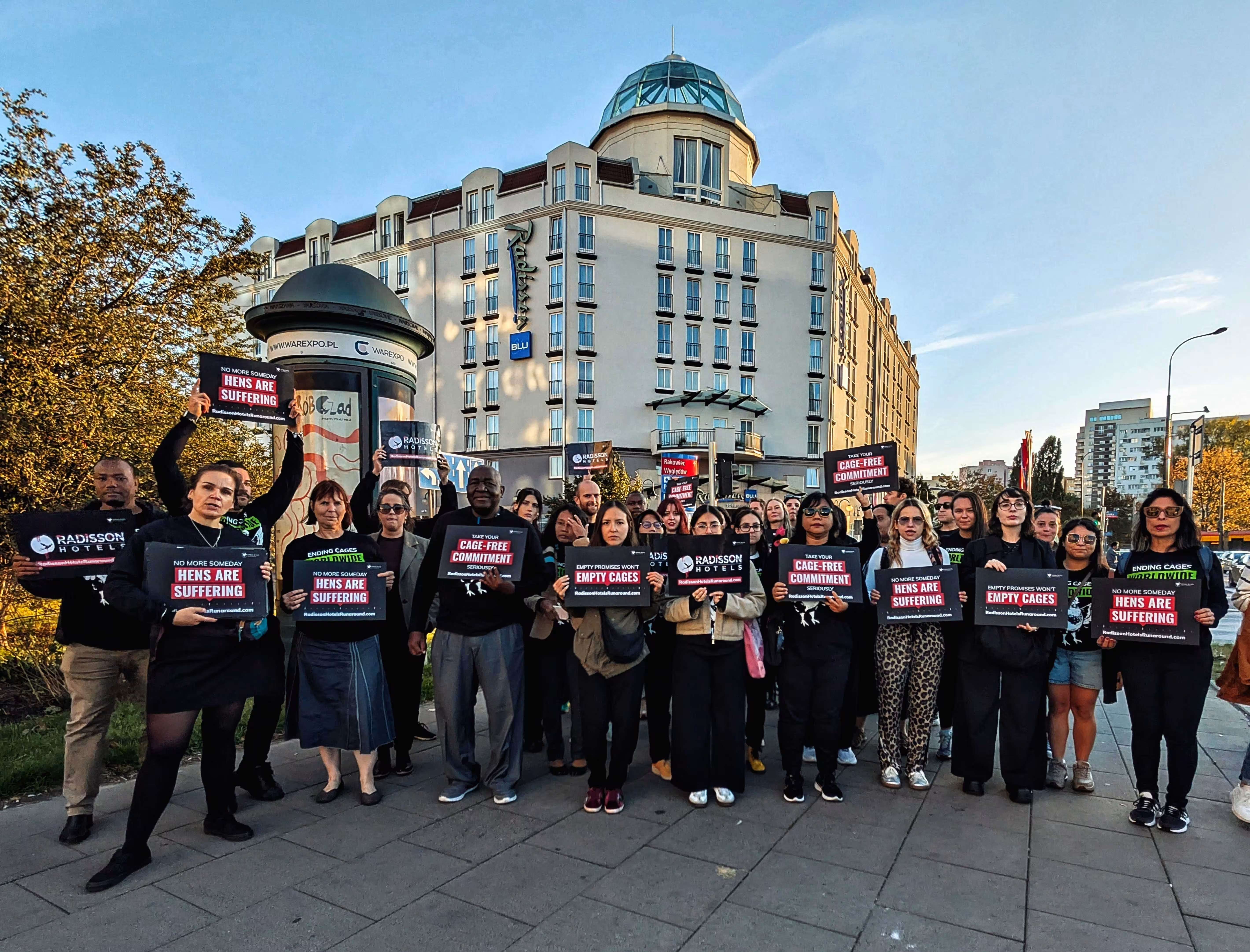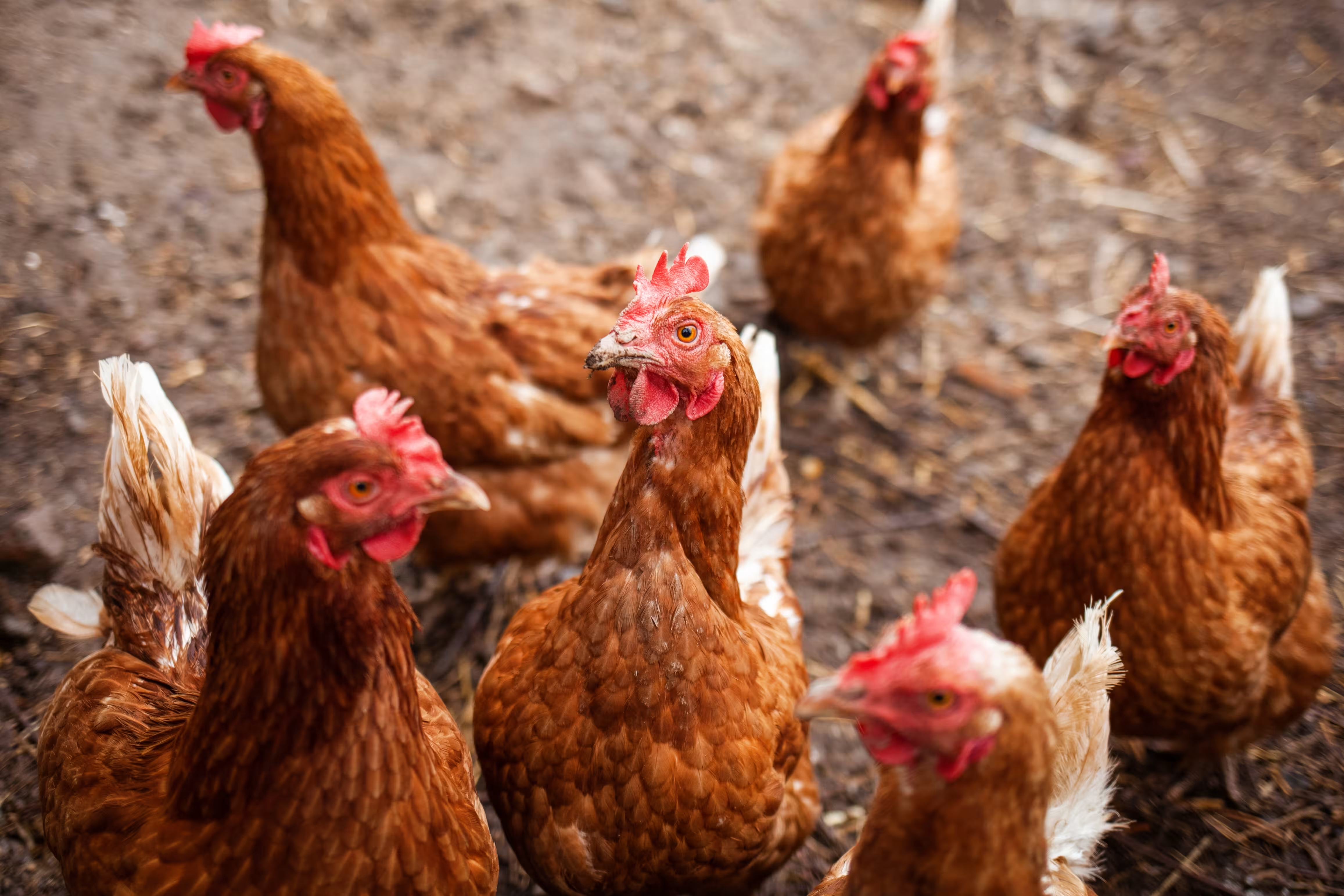How’s That Cage-Free Commitment Coming Along? These Companies Are Staying Silent





Hyatt, Hilton, and Best Western—along with other hotels, cruise lines, and coffee shops—are keeping consumers in the dark. They all made official commitments to source only cage-free eggs, but their lack of transparency raises doubts about their progress.

It’s good news when a corporation creates a policy to raise its standards for chicken welfare across its global supply chains. But when it fails to share its progress with the public, consumers can’t trust that it’s making any progress at all. After all, empty promises won’t empty cages.
Thousands of corporations around the world have already made animal welfare commitments to end their use of cages. Thanks to the efforts of the Open Wing Alliance (OWA), a global coalition of organizations around the world seeking to end the abuse of animals, more than 2,000 companies have announced corporate welfare policies to go cage-free. The majority of these have already fulfilled—or are sharing reports on—their pledges, proving that the movement to end cages is seeing real progress. And that’s definitely worth celebrating. This kind of reporting is especially important for companies that are just starting to make the transition to cage-free systems, because it shows they’re following through on their commitments to improve the welfare of the egg-laying hens in their supply chains.
What’s a cage-free chicken?
Worldwide, approximately 7.5 billion hens lay at a commercial scale, supplying restaurants, supermarkets, and the hospitality industry with billions of eggs each year. And roughly 90% of these birds don’t just live on factory farms—they live in tiny crates known as “battery cages.”
Without cage-free housing—which protects them from battery cages—egg-laying hens face some of the most intense forms of confinement. These wire cages can hold up to ten chickens at once, none of whom can stand at their full height or even spread their wings without hitting the walls of their overcrowded enclosures. With no straw or hay to soften the metal floors of these cages, the hens often twist their ankles on the barren grates. To keep the industry afloat, they lay hundreds of eggs per year, far more than the 12 they’d lay in the wild. Many die in these cages—and are left to rot. Those who survive tend to live, at most, for just two years, before they’re sent to slaughter.
Cage-free egg policies
Apart from passing legislation to protect animals, one of the most powerful ways to create meaningful change for chickens is to demand that corporations come out with cage-free egg policies. By pledging to eliminate all use of battery cages, giant companies stand to spare millions of hens from the worst forms of confinement.
But cage-free egg policies are just the first step. Corporations need to fulfill these policies across their supply chains and, along the way, let consumers know what progress they’re making. Words are nothing without action. And corporate accountability is nothing without transparency.
These companies lack transparency
Although these companies have announced plans to go cage-free across their global operations, they haven’t reported their global progress:
Carnival
Founded in 1972, Carnival is the largest cruise company in the world, with a fleet of nearly 100 ships spanning nine different cruise lines. These vessels travel all around the globe and serve 85% of the world’s cruise passengers. Although it committed to going cage-free by 2025 over half a decade ago—in 2015—Carnival has yet to let consumers know how its welfare standards have actually changed. The company’s 2020 report on sustainability mentions its intentions to go 100% cage-free by 2025 but offers no numbers on its progress, unlike its competitors Royal Caribbean and Norwegian Cruise Line.
Hyatt
Headquartered in Chicago, Hyatt is a multinational corporation with more than 1,000 hotels, resorts, and vacation properties in 68 countries on six continents. Hyatt announced a global cage-free policy in 2018 but has failed to share its progress since 2019. Its 2020 report mentions “continued ongoing efforts to address animal welfare criteria across categories including eggs, chicken, and pork,” but includes no measurable signs of progress.
Hilton
Hilton manages and franchises over 6,500 properties in 119 countries. With more than one million rooms, Hilton is among the largest hospitality corporations in the world. It pledged to go cage-free across its global supply chains in May 2019. In 2020, Hilton reported on its progress in the United States, United Kingdom, and Europe—but not worldwide. And Hilton hasn’t shared more recent updates on its global portfolio since then.
Kempinski Hotels
Kempinski Hotels, headquartered in Switzerland, operates 78 hotels in 34 countries across Europe, the Middle East, Africa, Asia, and the Americas. In June 2019, it committed to sourcing cage-free eggs across its international network. However, it’s failed to report on its progress towards its pledge. Kempinski Hotels’ 2020 report on sustainability and responsibility mentions its policy but reports no progress.
Best Western
Best Western oversees over 4,700 franchisee hotels in more than 100 countries and territories around the world. Roughly 400,000 guests stay at its properties every single night. While Best Western came out with a commitment to end its global use of cages in September 2019, it hasn’t provided updates on its progress—or lack thereof.
Costa Coffee
Costa Coffee, a coffeehouse chain with over 20 million consumers, is one of the largest coffee roasters in the world. It announced a global cage-free policy in 2019 but has yet to share its progress.
These companies are reporting cage-free progress
While Carnival, Hyatt, Hilton, Kempinski Hotels, Best Western, and Costa Coffee are failing to be transparent about their cage-free progress, over 40 other major companies have let consumers know how their global commitments are unfolding.
Making cage-free progress in the manufacturing sector
- Nestle
- Lindt
- Hershey
- Kraft-Heinz
- Danone
- Kellogg
- General Mills
- PepsiCo
- Unilever
Making cage-free progress in the restaurant sector
- Krispy Kreme
- Yum! Brands
- Alsea Group
Making cage-free progress in the travel and hospitality sector
- Royal Caribbean
- Norwegian Cruise Lines
- Marriott International
- Wyndham
- JetBlue
Making cage-free progress in the foodservice sector
- Sodexo
- Compass Group
- Aramark
When companies share their progress towards ending cages, they demonstrate corporate accountability—not only honoring the trust of consumers but also taking concrete steps to diminish the suffering of animals.
How you can help
You can call on corporations to create cage-free policies that save egg-laying hens from the cruelest forms of confinement—and you can demand these giant companies report on their progress. To date, over 2,200 companies have pledged to go cage-free around the world. Together, we can pressure these corporations to eliminate cages altogether. Will you join us?





